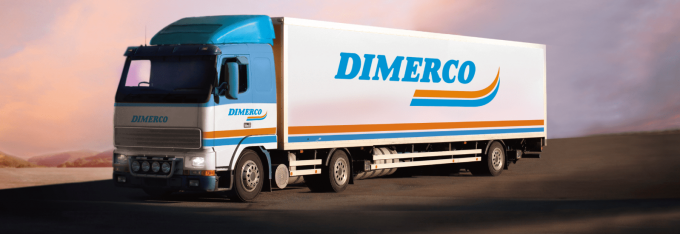Don't be too worried about east coast port shutdown, says top shipper
Despite some strident language from union leaders, shippers using US east coast ports should expect ...

Taiwan-based 3PL Dimerco has turned to Indonesia to combat US-China trade war challenges.
The company is helping customers around restrictions resulting from the trade war by “leveraging its strong presence in Indonesia”, especially at the Batam free trade zone (FTZ).
“The FTZ is proving a useful alternative for Taiwan-based companies,” Dimerco said. “Batam is a strategic area in South-east Asia where companies can outsource the production of 4G smartphones, with more reliable resources.”
Dimerco chief executive Edward Lin added: “Our customs clearance brokerage service offers a window for import and export products, connecting Indonesia with the rest of the world.
“The whole process of moving products to market is critical, and our strength in Indonesia – from freight forwarding, customs clearance, warehousing, value added services and last-mile delivery for cross-border e-commerce – is delivering a key competitive advantage for our customers, particularly at this challenging time.”
Located just 20km from Singapore, Indonesia has been promoting the island of Batam as a national logistics hub.
Batam FTZ and Free Port Management Agency is in the midst of upgrading both the port and airport in order to qualify for Special Economic Zone status, providing further incentives for foreign investors.
Jeffrey Shih, Dimerco’s vice-president of South-east Asia, told The Loadstar Batam remained exempt from import duties, sales tax, VAT and tax on luxury goods, divergence and customs.
“An entrepreneur will have a variety of import/export incentives,” he explained. “For example, there’s no import/export duties on machine, equipment, spare parts or raw materials. The whole island is duty free with no import/export tax on all items.”
With international trade tensions on the rise, the Indonesian government has made it clear it intends to continue lowering its own trade barriers to boost exports, and it plans to extend the successful roll-out of bonded logistics centres (PLBs) throughout the country, which offer reduced storage costs for importers and exporters.
Furthermore, Indonesia is negotiating 13 new free-trade agreements, including a deal with the European Free Trade Association (EFTA) of Iceland, Liechtenstein, Norway and Switzerland and the Regional Comprehensive Economic Partnership (RCEP), which covers trade between ASEAN and China, India, Japan, South Korea, Australia and New Zealand.
However, Zaldy Masita, chairman of the Indonesian Logistics Association, warned the trade war could pose risks to the country’s economy.
“What we’re concerned with is more Chinese products flooding into the Indonesian market. Indonesia also cannot get any benefit from the trade war because it doesn’t have strong product substitutes in order for the US to replace Chinese goods,” he claimed.
According to Dimerco’s Mr Shih, a lengthy trade war could see more manufacturing shifting from China to South-east Asia, particularly apparel and textiles, electrical equipment and components and petrochemical products.
“Production is likely to move to Cambodia, India, Indonesia, Malaysia, Philippines, Thailand and Vietnam, depending on situation, such as textiles mainly shifting to Vietnam.
“As manufacturers have relocated their production lines to a third country in South-east Asia, and ASEAN has decided to eliminate trade tariffs among its members with support for integrated regulations, there will be more intra-Asia trade,” he added.
Comment on this article